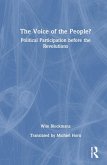This book explores the political construction of imperial frontiers during the reigns of Ferdinand the Catholic and Charles V in the Iberian Peninsula and the Mediterranean. Contrary to many studies on this topic, this book neither focuses on a specific frontier nor attempts to provide an overview of all the imperial frontiers. Instead, it focuses on a specific individual: Juan Rena (1480-1539). This Venetian clergyman spent 40 years serving the king in several capacities while travelling from the Maghreb to northern Spain, from the Pyrenees to the western fringes of the Ottoman Empire. By focusing on his activities, the book offers an account of the Spanish Empire's frontiers as a vibrant political space where a multiplicity of figures interacted to shape power relations from below. Furthermore, it describes how merchants, military officers, nobles, local elites and royal agents forged a specific political culture in the empire's liminal spaces. Through their negotiations and cooperation, but also through their competition and clashes, they created practices and norms in areas like cross-cultural diplomacy, the making of the social fabric, the definition of new jurisdictions, and the mobilization of resources for war.
Hinweis: Dieser Artikel kann nur an eine deutsche Lieferadresse ausgeliefert werden.
Hinweis: Dieser Artikel kann nur an eine deutsche Lieferadresse ausgeliefert werden.
"Escribano-Páez has delivered an important contribution to understanding the early development of Spanish administration on imperial frontiers, and it is a particularly significant next step in the advancement of the histories of Spanish-North Africa and Navarra."
Yuen-Gen Liang Institute of History and Philology, Academia Sinica, Taiwan
"Escribano-Páez takes us on a journey that allows us to re-evaluate the Mediterranean frontier not as an aseptic zone, but as an important laboratory of experiences, practices and norms with which to rethink the history of the empires of the early modern age through the eyes of those who acted on the ground."
Francesco Caprioli Università degli Studi di Milano, Italy
"From Andalusia to the Maghreb, from the Pyrenees to the Eastern Mediterranean, Rena's life story helps Escribano-Páez to show that, in contrast to certain triumphalist and outdated visions of Hispanic hegemony, the greatest challenge facing the Monarchy in the early 16th century was not so much to conquer as to develop strategies that would guarantee the maintenance of its new possessions."
David Martín Marcos Universidad Nacional de Educación a Distancia, Spain
Yuen-Gen Liang Institute of History and Philology, Academia Sinica, Taiwan
"Escribano-Páez takes us on a journey that allows us to re-evaluate the Mediterranean frontier not as an aseptic zone, but as an important laboratory of experiences, practices and norms with which to rethink the history of the empires of the early modern age through the eyes of those who acted on the ground."
Francesco Caprioli Università degli Studi di Milano, Italy
"From Andalusia to the Maghreb, from the Pyrenees to the Eastern Mediterranean, Rena's life story helps Escribano-Páez to show that, in contrast to certain triumphalist and outdated visions of Hispanic hegemony, the greatest challenge facing the Monarchy in the early 16th century was not so much to conquer as to develop strategies that would guarantee the maintenance of its new possessions."
David Martín Marcos Universidad Nacional de Educación a Distancia, Spain








